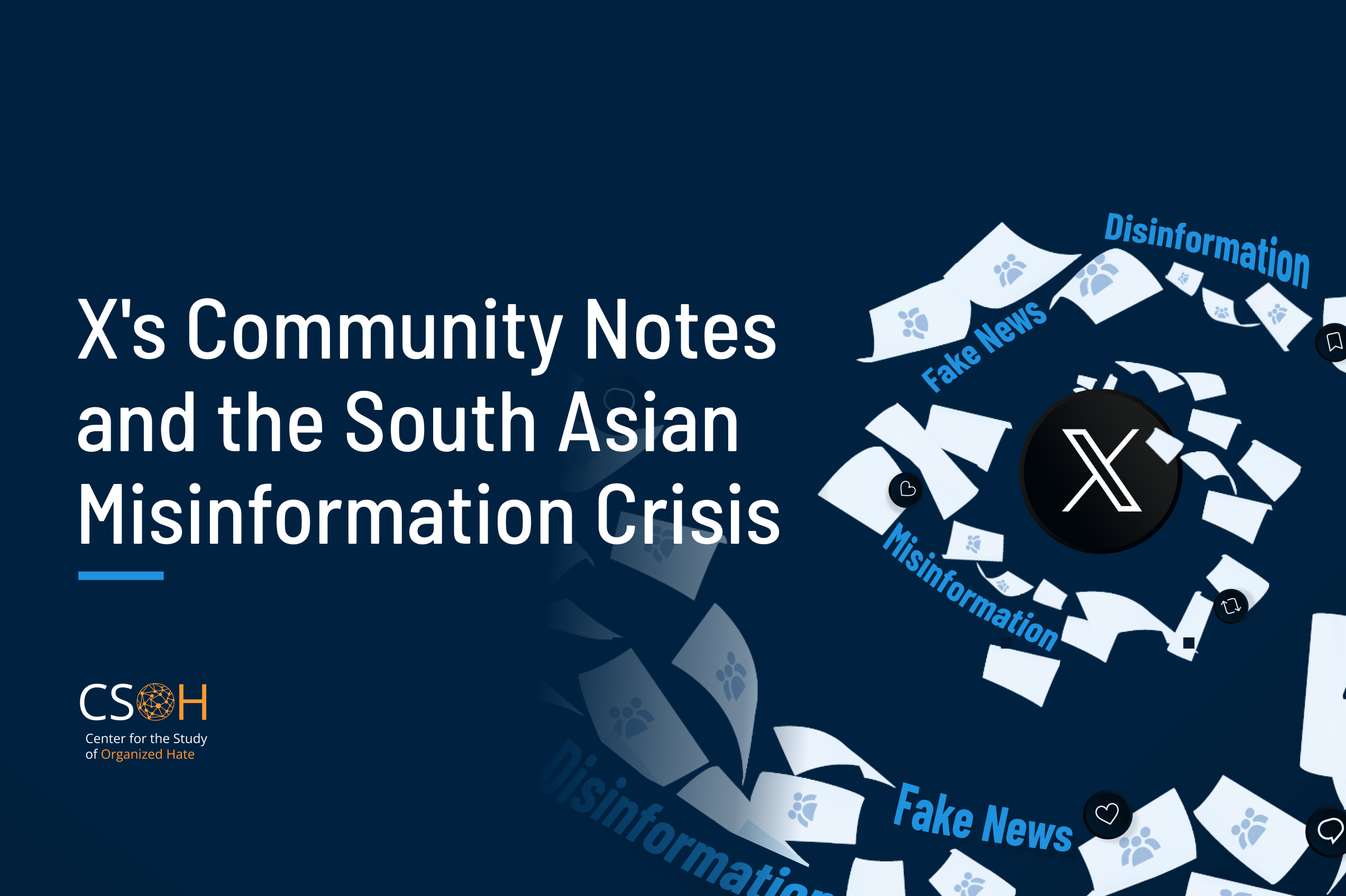Washington, DC (June 28, 2025) — The Center for the Study of Organized Hate (CSOH) today released a new report, “X’s Community Notes and the South Asian Misinformation Crisis,” which critically examines the performance of X’s Community Notes feature in South Asia, with a focus on adoption, linguistic representation, and impact in the region.
The analysis of 1.85 million public Community Notes reveals a stark disparity with only 1,737 notes, a mere 0.094%, written in South Asian languages. This is despite the region accounting for over 25% of the world’s population and approximately 4.9% of X’s monthly active users. Even Hindi, the most represented South Asian language on the platform, makes up less than five-hundredths of one percent of all notes.
The report finds that fewer than 40% of drafts in South Asian languages meet the platform’s “helpful + bridging” criteria, compared to ~65% for English. Notes often fail for non-content reasons—no divergent-cluster endorsement, not enough raters—showing that low reviewer density, not poor note quality alone, throttles coverage. The requirement that those who rate the notes must have disagreed on other tweets is seemingly an arbitrary one, which fundamentally misunderstands what ‘neutral’ community notes should be.
Case studies in the report detail contributor-submitted notes containing personal attacks (e.g., calling others “Italian-mafia supporters”) or abusive generalizations about public institutions (e.g., “every last one is a haram-khor [parasite/cheat]”). Although these notes were ultimately blocked—one by the helpfulness screen, another by the bridging filter—their initial progression reveals weak safeguards around tone, sourcing, and scope, particularly in politically polarized environments.
Further, the Community Notes interface, guidelines, and sign-up flow are still heavily English-centric, creating barriers for contributors who write in Hindi, Urdu, Tamil, Nepalese, Bengali, and other South Asian languages. X has also not released a crisis-response playbook explaining how Community Notes would function during floods, communal violence, or national elections.
The scarcity of Community Notes in South Asian languages leaves significant informational gaps, especially in fast-moving or high-stakes contexts. With few localized corrections and limited reviewer engagement, misinformation in these languages faces less resistance, allowing false narratives to circulate more freely than in English or better-covered regions.
The report offers several recommendations for X to improve Community Notes coverage and neutrality in South Asia. These include: aggressive expansion of the contributor base in local languages; improved onboarding and training; enhanced interface and visibility for local notes; localized moderation and oversight; the creation and publication of a transparent crisis-response protocol; algorithmic adjustments to ensure fairness; cross-platform and community partnerships; and strengthened user education and trust-building.
The report also warns that Meta, which is currently testing its own Community Notes-style feature, a crowdsourced fact-checking system designed to scale moderation through collective input, may replicate the same pitfalls. X’s experience shows how quickly such a feature can entrench inequities if its design incentives go unexamined. Unless Meta confronts these structural gaps, it risks reproducing the same blind spots across Facebook, Instagram, and Threads.
For media inquiries, please contact [email protected]
